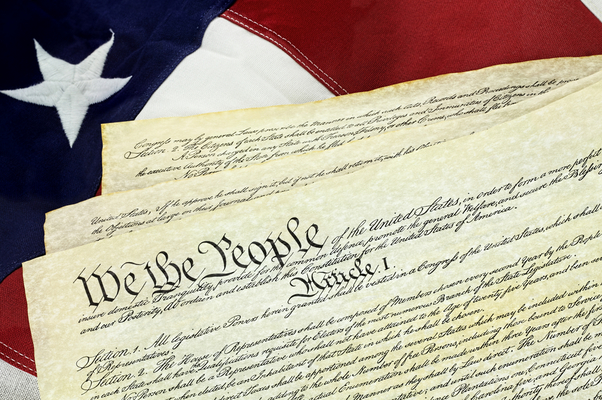Article 1, Section 8 of the Constitution identifies the various services to be provided to the states based on their compliance with the General Welfare Clause in the U.S. Constitution.
It states that any service(s) to residents of the states must benefit all residents of the states, not separate interest groups. The services identified in the "non-constitutional" budget will be those that presently do not meet the General Welfare Clause. Therefore, those non-constitutional services should be provided by the individual states, if appropriate.
Here are the government services for a constitutional government that meet the General Welfare Clause:
- Defense – to define and punish Piracies and Felonies committed on the high Seas, and Offences against the Law of Nations. To declare War, grant letters of Marque and Reprisal, and make Rules concerning Captures on Land and Water. To raise and support Armies, but no Appropriation of Money to that Use shall be for a longer Term than two Years. To provide and maintain a Navy. To make rules for the Government and Regulation of the land and naval Forces. To provide for calling forth the Militia to execute the Laws of the Union, suppress Insurrections and repel Invasions.
- Commerce – to regulate Commerce with foreign Nations, and among the several States, and with the Indian Tribes.
- Treasury – to borrow money on the credit of the United States. To coin Money, regulate the Value thereof, and of foreign Coin, and fix the Standard of Weights and Measures.
- Judicial– to establish a uniform Rule of Naturalization, and uniform Laws on the subject of Bankruptcies throughout the United States. To provide for the Punishment of counterfeiting the Securities and current Coin of the United States. To promote the Progress of Science and useful Arts, by securing for limited Times to Authors and Inventors the exclusive Right to their respective Writings and Discoveries. To constitute Tribunals inferior to the supreme Court.
Washington, D.C. (added after 1787) – Official government site
State – Shape and sustain a peaceful, prosperous, just, and democratic world and foster conditions for stability and progress for the benefit of the American people and people everywhere. - Legislative Branch - Senate and House of Representatives (Sections 1, 2, 3, 4, 5, 6, and 7).
- Executive Branch - President (Article 2: Sections 1, 2, 3, and 4)
- Judicial Branch – Includes the Supreme Court and inferior courts
Here are government services that do not meet the requirements of the General Welfare Clause:
- Agriculture – provides leadership on food, agriculture, natural resources, rural development, nutrition, and related issues based on sound public policy, the best available science, and efficient management.
- Education – to promote student achievement and preparation for global competitiveness by fostering educational excellence and ensuring equal access.
- Interior – Protects America’s natural resources and heritage, honors our cultures and tribal communities, and supplies the energy to power our future.
- Homeland Security – missions include preventing terrorism and enhancing security; managing our borders; administering immigration laws; securing cyberspace; and ensuring disaster resilience.
- Transportation – ensures a fast, safe, efficient, accessible and convenient transportation system that meets our vital national interests and enhances the quality of life of the American people, today and into the future.
- Labor – to foster, promote, and develop the welfare of the wage earners, job seekers, and retirees of the United States; improve working conditions; advance opportunities for profitable employment; and assure work-related benefits and rights.
- Energy – to ensure America’s security and prosperity by addressing its energy, environmental and nuclear challenges through transformative science and technology solutions.
- Environmental Protection Agency – to strengthen the capacity of small communities throughout America to improve and protect the health of their people and the environment in which they live.
- Veterans Affairs – to care for the men and women who are America’s Veterans.
- Housing and Urban Development – create strong, sustainable, inclusive communities and quality affordable homes for all.
- Health and Human Services – protects the health of all Americans and providing essential human services, especially for those who are least able to help themselves.
In order to comply with the U.S. Constitution regarding constitutional services, two-thirds of both Houses of Congress can propose amendments or two-thirds of the states can call for an Article V Convention of States.
Any amendments proposed by Congress or a Convention of States must be ratified by three-fourths of the state’s legislatures. Congress has always had the authority and obligation to follow the rules of the Constitution, however, since Congress has chosen not to accept their responsibility for following the Constitution or to control excessive spending, the states can make the necessary changes though a Convention of States.






